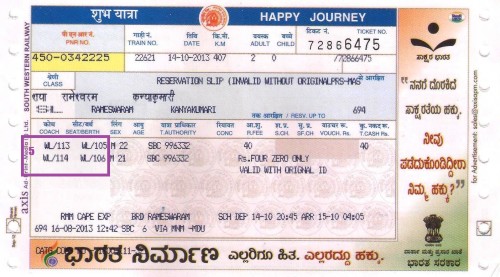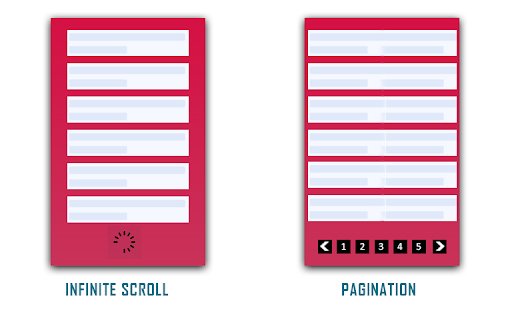In the post Get more out of your reading, I talked about using Pocket, a tool that helps you save web articles for later reading. Pocket also saves content for reading offline, so that you don’t have to remain connected to the Internet to read the saved articles. Perfect for reading during commutes.
Recently I shifted to a tool named Shiori for saving articles to read later. Cannot help noticing a significant difference between the two. What if there are more articles saved than the size of your screen? Pocket is an app designed with modern UI. It provides ‘infinite scroll’. Shiori has a good UI, but it looks very outdated, like an Android app from 2013. It also uses the outdated concept of ‘pagination’. This outdated concept is why I respect the app in the first place.
What is infinite scroll?
If you look at any modern website or mobile app, you will see that once you have finished browsing upto the bottom of your screen and scroll down, the app / website starts loading more articles, usually another screenful. If you are addicted to that app, then you will continue to read without noticing that you have read enough. The automatic behaviour is to fall into a trap and keep reading.

Examples include the most notoriously addictive apps such as Facebook, Twitter, news websites, Reddit and plenty of others. Even the alternative search engine DuckDuckGo does the same.
What is pagination?
Other apps like Google search on web, Amazon Shopping on web and Shiori prefer to use the concept of numbered pages. Depending on the website designer’s choice, 10 to 50 items are shown on a single page. But scrolling beyond those items does not get you anywhere. It seems like you run against a solid wall. Instead they show a row of hyperlinks with numbers for further pages: 2, 3, and so on. The cue is that you are done with the current page. To read more pages of information, you must actively choose to jump to other pages. The automatic behaviour is a pause and a conscious choice about whether you want to read further.

Google and Amazon aren’t exactly doing this for your wellness. Instead it is business for them. They want to show the best and sponsored results on the first page to look out for the reputation of their search and for revenue. Everything from page 2 onwards is based on your choice to ‘tolerate’ inferior results. So what? We can use that feature for our wellness!
Why infinite scroll is evil
As mentioned, the automatic behaviour encouraged by infinite scroll is to consume further. It seems harmless. But that tiny difference can mean whether you spend two minutes on Facebook or two hours. The more they throw at you, the more you read without realising that you are trapped.

What and how much you consume should be your conscious choice and not because someone manipulates your brain with an automatic behaviour. Most social media and news websites want you to spend as much time with them as possible and they will conjure every trick possible to keep your attention.
Infinite scroll is the reason why terms like ‘binge reading’ and ‘binge watching’ came up. YouTube has auto-play to automatically play the next relevant video. Amazon Prime Video and Netflix automatically play the next episode if you are watching a series. And video definitely takes away more productive hours than reading ever can.
Examples of non-digital infinite scroll
When on a joy ride, you are more likely to drive your car or ride your motorbike much further on a road that has no kilometre or mile markers, thus burning more distance and wasting fuel. This is also true if you don’t have a particular destination in mind. “Let’s go to Cafe Sea View for coffee”, will stop your drive at the mentioned cafe, whereas “Let’s find a nice cafe by the sea”, will keep you driving along the entire sea route as you find excuses to reject the next cafe and keep driving on.
If you subscribe to a daily food delivery service and it includes a daily subscription for potato chips, then the chances of you consuming an entire packet per day are higher. Because, you know that a fresh batch is due the next day.
Indian Railways has a humongous waiting list for every train. They do not say NO very easily and just keep taking in more reservations even when they know that the requests cannot be fulfilled. Seeing a ‘WL’ (Waiting Listing) on an issued ticket rather than an outright rejection of request, passengers cling to the hope that their reservation will move from waiting status to a reserved seat. More often than not, seats aren’t confirmed and the passengers have to look for alternative ways to travel. Meanwhile the Railways cancel the unconfirmed tickets automatically, but withhold the reservation charges and apply cancellation charges. I am sure the Indian Railways make plenty of money in such fees.

Beating the infinite scroll trap in the digital world
Switch to services which offer the same quality of service, but with pagination. E.g. Shiori instead of Pocket.
Look for settings in your favourite service to see if they have options for pagination instead infinite scroll.
Use a timer, either on your phone or with a device like Pomodoro timer, to restrict your surfing time to an acceptable limit. The beep from such a timer will break you out of your spell.

Beating the infinite scroll trap in the non-digital world
If the system doesn’t offer a reasonable limit, set one yourself. In our examples above, it is easy to discontinue subscribing to chips. But there may be an unlimited number of cafes on the sea-facing road. If you are having trouble choosing a cafe, limit yourself to choose from the first five cafes you saw on the road.
While reserving a train on the Indian railways, refuse to proceed with a booking if the system suggests that you will be queued up any further than #10 in the waiting list. While driving on a road with no markers, the odometer on your car / bike should be watched.
Should I use infinite scroll to increase good habits?
I think you are referring to something like this. Using a infinite scroll app to study prayers, mathematics or guitar lessons in a long sequence. Subscribing to fruits and vegetables on a food delivery app everyday. Riding your bicycle on a road without distance markers.
No, I definitely DO NOT recommend most of that. Bad habits should be discarded. But even good habits should be followed in moderation. No habit is a good habit if done in excess. If you keep studying prayers, maths or guitar lessons in an endless sequence, when will you get up to do your next task for the day? Riding your bicycle for an infinite distance is a recipe for exhaustion and burnout, not fitness.

Subscribing to fruits and vegetables on a food delivery app? Well, it depends. Food delivery apps always have a minimum order quantity, so that they can justify the cost of shipping. The app I use, bbdaily, agrees to ship a minimum of 100 grams of certain fruits or vegetables. But for others, it requires a minimum order of 500 grams or 1 kg. For my two person household, our average consumption of each fruit / vegetable is 50 – 100 grams per day. So instead of daily subscriptions, I maintain weekly subscriptions. Is that an infinite scroll? Yes, but with a controlled frequency that suits our situation. Like having an app that loads the next scroll only if you take a break from reading for an hour after having read the first screenful.
Conclusion
The limits of any activity your perform should be under your control rather than at the mercy of a system that prompts automatic behaviour. Infinite scroll is a system designed to keep you consuming rather than taking a pause and considering if you have consumed enough. You will do better if you switch to a system such as pagination where the limits of your current action can be clearly seen and the choice of continuation is in your control.

parallels to digital scroll is a great example. I never realised it can be extended to the physical world 😀
We see it happen in the digital world because of the rotating icon. But in the physical world, we can be blind-sided when infinity beckons! Keep your eyes open wide to spot the hidden rotating icon!